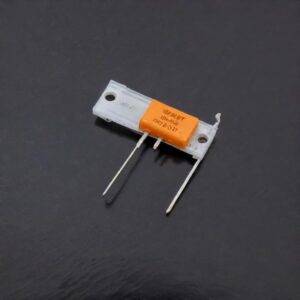1/4 Watt Resistor Calculator
Understanding the 1/4 Watt Resistor
A 1/4 watt resistor is a crucial component in electronic circuits, known for its ability to handle a specific amount of power—0.25 watts. This type of resistor is commonly used in various applications, from hobbyist projects to professional electronics, due to its reliability and compact size. In this article, we’ll explore the features, applications, and considerations of a 1/4 watt resistor.
What Is a 1/4 Watt Resistor?
A 1/4 watt resistor is designed to dissipate heat produced by the electrical signal passing through it. Resistors are rated by their power handling capability, and the 1/4 watt specification indicates that it can handle 250 milliwatts without overheating.
How to Choose the Right 1/4 Watt Resistor
When selecting a 1/4 watt resistor, consider the following:
- Resistance Value: Measured in ohms, this value determines how much the resistor opposes the flow of electric current.
- Tolerance: Represents the precision of the resistor value; common tolerance levels include ±5% and ±10%.
- Temperature Coefficient: Indicates how much the resistance changes with temperature; lower values are preferable for stability.
Applying the 1/4 Watt Resistor in Circuits
Using a 1/4 watt resistor is straightforward. When installing, ensure the resistor is correctly positioned to avoid circuit failure. Common applications include:
- Voltage division.
- Current limiting.
- Pull-up and pull-down configurations in digital circuits.
Tips for Working with 1/4 Watt Resistors
“Choosing the right resistor can make or break your circuit design.”
Here are some essential tips:
- Heat Management: Always calculate the power dissipation to avoid overheating.
- Color Code: Familiarize yourself with resistor color codes to identify value and tolerance accurately.
10 Key Facts About 1/4 Watt Resistor
- How does a 1/4 watt resistor work? It resists current flow, dissipating energy in the form of heat.
- Can you easily replace a 1/4 watt resistor? Yes, it can be replaced or soldered into circuits with standard tools.
- What happens if you exceed the wattage? Exceeding 1/4 watt can cause the resistor to overheat and fail.
- Are there different types of 1/4 watt resistors? Yes, options include carbon film, metal film, and wirewound types.
- Is a 1/4 watt resistor suitable for high wattage applications? No, it is intended for low power applications.
- How do you measure resistance in a circuit with a 1/4 watt resistor? Use a multimeter set to the ohm setting for accurate measurement.
- What should you consider when soldering? Avoid excessive heat to prevent damage to the resistor.
- Can a 1/4 watt resistor be used in a breadboard? Absolutely, it fits perfectly with standard breadboard connections.
- What are common applications for 1/4 watt resistors? They are commonly used in audio circuits and LED applications.
- Is it easy to find a 1/4 watt resistor? Yes, they are widely available at electronic parts retailers.
1/4 watt resistors are like the unsung heroes of electronics! 😂 I mean, you can do sooo much with ’em. Anyone else ever accidentally got the wrong wattage? Ugh, total newbie move lol! Any tips on using them effectively?
Hey, this is super helpful! I’ve been needing some resistors for a project, and 1/4 watt sounds like just what I need. 😄 Anyone know if they work well for LED circuits?
Wow, didn’t realize how common 1/4 watt resistors were! All those little projects we do and we just toss them in. Do they really make a difference in performance?